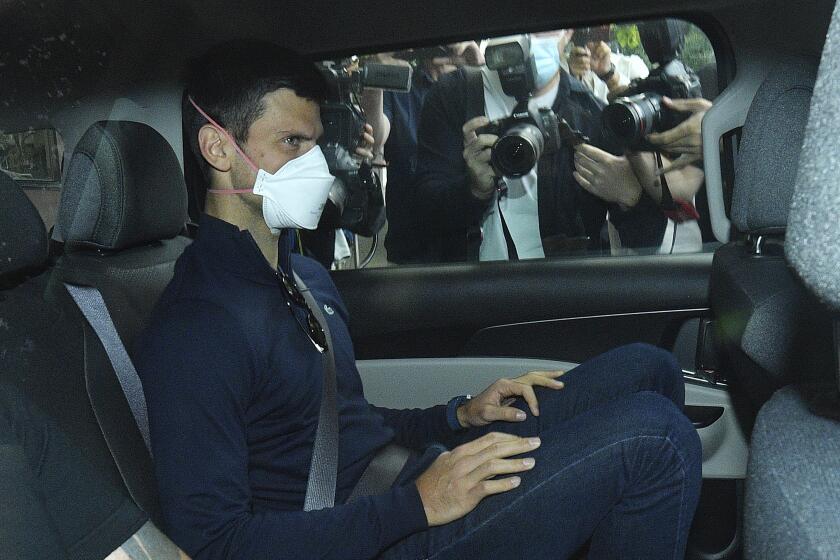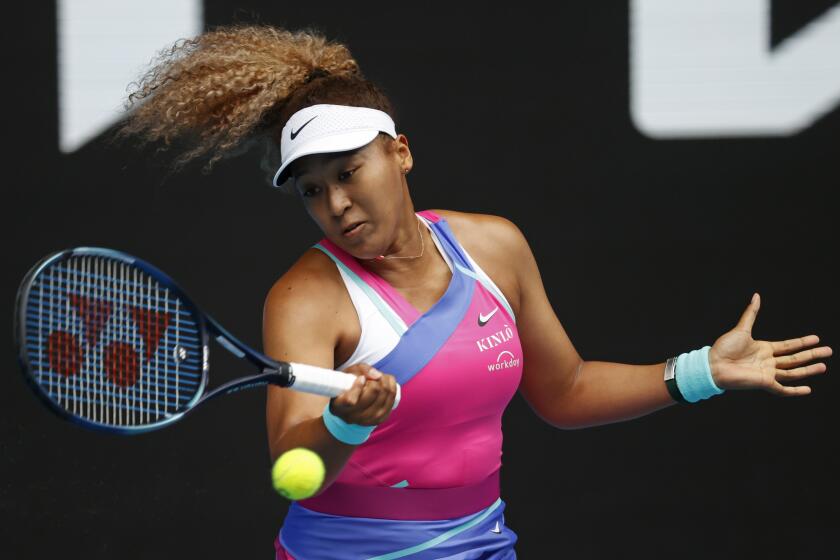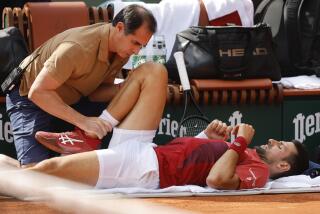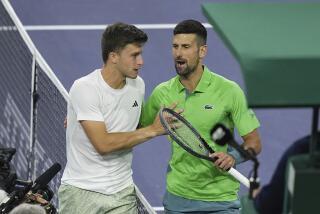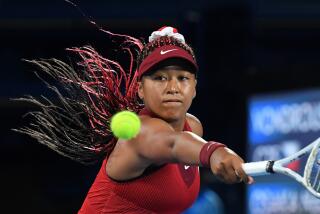Column: Australian Open doesn’t need Novak Djokovic to put on an intriguing show
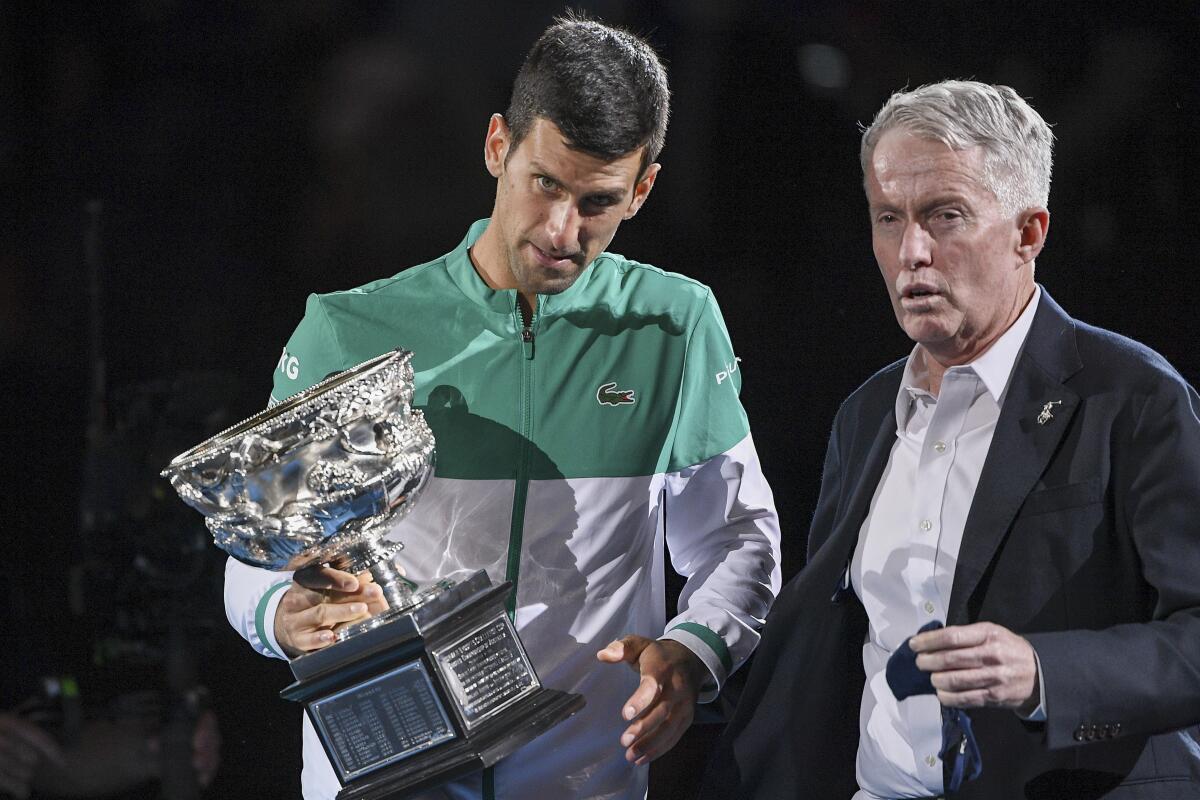
The Australian Open, known as the “Happy Slam” for its hospitable setting in Melbourne and its place as the first big event of the tennis calendar, isn’t off to a cheery start this year. Hold the vegemite sandwiches and take the shrimp off the barbie.
The first Grand Slam of 2022 began Monday in Australia (Sunday in the United States) still steeped in the sour aftermath of Novak Djokovic’s controversial entry into the country and, after more time spent in a court than on one, his deportation by the Federal Court of Australia based on fear that his non-vaccinated status might trigger strong anti-vaccination protests and discredit the country’s efforts to curb the surging COVID-19 omicron variant.
Projecting what might have happened hardly seems reason enough to send him packing, but that’s what it came down to as a three-judge panel upheld immigration minister Alex Hawke’s wide discretionary power to revoke Djokovic’s visa. That ended a saga that included the visa being canceled upon his arrival, restored when a judge determined procedural errors had been made, a second cancellation after he had practiced at Melbourne Park, and a weekend decision that wasn’t appealed because time had run out on his chance to compete.
Nine-time Australian Open winner Novak Djokovic is deported from Australia after losing his appeal to have his visa reinstated.
The final decision seemed to reflect public sentiment: According to a survey conducted for the Sun-Herald and Sunday Age last week, 71% of Australians wanted Djokovic booted out; that figure was 83% in a NewsCorp survey of more than 60,000 people. To a population understandably weary of COVID lockdowns and concerned about a burdened health system, letting Djokovic into the country to pursue a men’s record 21st Slam singles title was seen as arrogant disrespect for the hardships the people are still experiencing.
It is Djokovic’s right to remain unvaccinated, debatable and arguably irresponsible though that is. But he must accept the consequences of his choice, among them a possible three-year ban from entering Australia. It’s also the right of Australia or any other nation to set the terms for the entry of visitors. At least two other unvaccinated players stayed away for those reasons. Djokovic also might have trouble entering the U.S. for the BNP Paribas Open at Indian Wells in March and the U.S. Open in New York without an exemption, affecting his career arc.
No one emerged from this looking good except lucky loser Salvatore Caruso of Italy. The 150th-ranked player in the world fell in the qualifying rounds but inherited No. 1-ranked Djokovic’s spot in the men’s main draw. Happy payday to him.
Djokovic shouldn’t have been allowed to enter the country in the first place. For that, blame Australian Open tournament director Craig Tiley, who contorted himself into a pretzel to push Djokovic through a dodgy loophole. Why? As always, follow the money.
The extra attention and revenue that might have been generated by Djokovic’s attempt at a 10th title in Melbourne were powerful motivations for Tiley to somehow slip Djokovic into Australia. The praise Tiley had anticipated has turned into cries for his dismissal.
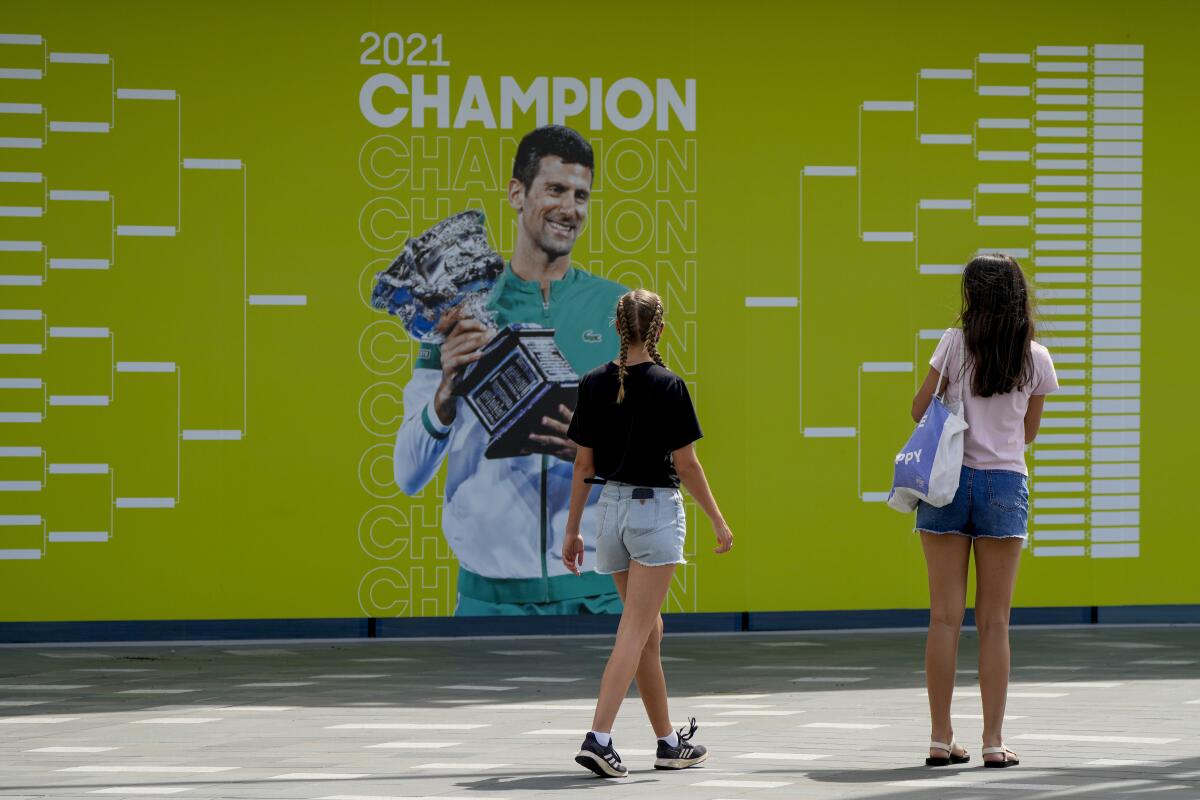
Tiley either misunderstood or willfully disobeyed a notice from a federal health minister in late November that said previously having been infected with COVID-19 wasn’t a valid reason to exempt a player from the vaccine requirement. Tiley has said he was told otherwise by officials in the state of Victoria, where Melbourne is located, and he proceeded on that basis. He said the problem was poor communication between state and federal officials, but that’s not good enough. He should have demanded clarity, if that was lacking, and should have realized flouting the rules wouldn’t go over well among Aussies.
Not that Djokovic is a martyr. On an immigration form that asked where he had traveled in the two weeks before his arrival in Australia he said he had not visited other countries when, in fact, he had been in Serbia and Spain. He blamed that on his agent, who he said, “sincerely apologizes for the administrative mistake. This was a human error and certainly not deliberate.”
He also acknowledged he had conducted an interview and photo shoot with the French sports publication L’Equipe after having learned he’d tested positive for coronavirus on Dec. 18.
“On reflection, this was an error of judgment and I accept that I should have rescheduled this commitment,” he said in a statement.
It wasn’t an isolated error, given his decision to organize a tour in the early summer of 2020 that ignored safety protocols. Djokovic, his wife and about half a dozen other participants tested positive for coronavirus, cutting the tour short.
With the saga of Novak Djokovic’s bid to play in the Australian Open fading, reigning women’s champion Naomi Osaka defeated Camila Osorio 6-3, 6-3.
The Australian Open existed as a major event long before Djokovic ascended to No. 1 in the world. It will exist long after he has retired. His presence would have created great drama, but there are many other intriguing stories to follow.
Start with Rafael Nadal’s return to competition after a bout with COVID-19 and his effort to win a 21st Slam singles title before Djokovic or Roger Federer, who’s absent while recovering from knee surgery. Follow with Andy Murray, artificial hip and all, being competitive again.
On the women’s side, home country favorite Ash Barty will try to keep her No. 1 ranking, and Naomi Osaka is back to defend the title she won last year before mental health issues led her to take time away from competition. Paula Badosa of Spain is playing her best tennis.
Before he left Australia, Djokovic said he was disappointed by the Federal Court’s ruling but respected it.
“I am uncomfortable that the focus of the past weeks has been on me and I hope that we can all now focus on the game and tournament I love,” he said.
Finally, something tennis and sports fans can agree on.
More to Read
Go beyond the scoreboard
Get the latest on L.A.'s teams in the daily Sports Report newsletter.
You may occasionally receive promotional content from the Los Angeles Times.

